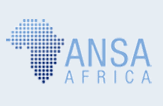Capitation policy "highly flawed"
27 September 2010
The Citizen
Dar es Salaam: The primary school students' capitation grant which was introduced under the capitation grant policy in 2002 has failed to serve its purpose, a survey conducted by Uwazi-Twaweza has established. Addressing reporters yesterday, the Uwazi-Twaweza managing director, Mr Rakesh Rajani said that the primary school capitation grant needs serious changes to enable students benefit from the policy.
Uwazi is part of Twaweza, a new citizen-centered initiative, focusing on large-scale change in East Africa region.
Mr Rajan said this when revealing the report of a survey on capitation grant. He said the $10 (about Sh14,000) grant a year to each primary school pupil was not enough to buy books and other academic materials and that its value has declined by over 35 percent since it was established about nine years ago. "It has been established that there was a need to make changes in the whole system so that there could be positive improvement in the education sector," said Mr Rajan.
The analysis report shows that the policy was introduced in order to replace the revenues lost to schools because of the abolition of fees and to improve the quality of education by making real resources available at the school level. According to the report, at least Sh80 billion was allocated in 2009/10 fiscal year under the Primary Education Development Programme (PEDP) but still there were no enough improvement which reflect the allocated funds.
The report established that the allocation of Sh14,000 ($10) to each pupil has never been adhered and only Sh4,189 has been actually provided for each pupil. The report reads also that the amount was not enough to the extent that even if it was released in full, it was too small to cover the cost of learning materials. It added that the actual capitation grant disbursements were less than what was allocated in the budget, and thus it was so unpredictable for proper planning.
The report establishes that the amount allocated in the budget for capitation grants has systematically been lower than the amount stated in the PEDP policy adopted by cabinet. According to the report, in 2007/08 the shortfall in capitation grant was Sh4,481 per pupil as government allocated Sh5,519 per pupil.
Mr Rajan said that there was a need to revise the policy and allocate more money to enable the implementation of different school programmes. Commenting on the problems that hinder the development of primary school education in the country, Mr Rajan said the analysis has established also that the allocated money was not delivered on time thus delaying implementation of development programmes. He added that there was no transparency among teachers, government officials and wananchi in general on the capitation grant.
But the PEDP coordinator from the ministry of Education and Vocation Training, Mr Benedict Mtui told The Citizen that the delay or timing of cash depend on the response of the donors. According to Mr Mtui, the government always asks for cash from different areas and that it becomes difficult to allocate fund to a particular school if there is no response from the source. "We fail to provide money on time, and sometimes we offer less amount because we are also receiving money from donors, so some give us on time and other delay or nothing at all therefore that is how this problem happen," said Mr Mtui.
Commenting on the transparency on allocating and using of the fund, Mr Mtui said the reports were published in the government gazette but currently all reports were exposed on the ministry of Finance and Economic Affairs website.
The Uwazi-Twaweza Research analyst, Ms Rose Aiko said the present price for the book was between Sh3,500 and Sh5,000 and that the 40 percent of Sh10,000 which is currently offered by the government was not even enough to buy a single book. She said, in order to foster education sector, the government must increase the amount of capitation grants to primary school pupils.
According to Twaweza, at least sh 13,000 were needed to each pupil just for buying books alone.
Keywords: education, budget monitoring, expenditure tracking, Tanzania
|

